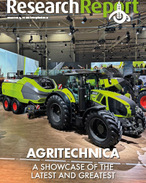This article is 3 years old. Images might not display.
The Low Methane Beef Project is being led by the University of New England (UNE), with Angus Australia being a key collaborator, along with the NSW Government and Meat & Livestock Australia (MLA).
The research aims to generate methane emission research breeding values by compiling new and existing data on beef cattle methane emissions, measured specifically for genetic evaluation.
The amount of carbon dioxide and methane in an animal's breath will be measured in cattle as they eat an attractant.
Cattle at key research locations will be participating in the project, including 2000 Angus steers (Cohort 11 to Cohort 15) located at The University of New England's Tullimba feedlot, where most of the Angus Sire Benchmarking Program (ASBP) bred steers are fed and tested for feed intake.
When combined with other industry projects, the methane emissions of over 8000 Australian beef animals will be captured.
The research will also investigate how methane output interacts with profit-driving traits such as growth rate, fertility, feed intake, carcass weight and quality.
With the Australian red meat industry committing to a net zero emissions target by 2030, the project will provide an option for breeders to genetically select for lower methane emissions seeks to deliver environmental and financial benefits.
Angus Australia's general manager - Genetic Improvement, Christian Duff, said the project will support the industry to breed cattle that are profitable for the supply chain, while meeting the environmental expectations of global consumers.























